Loans
2019 Top 25 Company Leaders in Lending – Canadian Lenders Association – Presented By BMO
November 11, 2019 The Canadian Lenders Assocation (CLA) received 124 nominations for these awards from leaders in lending across the country. The CLA’s goal is to support access to credit in the Canadian marketplace and champion the companies and entrepreneurs who are leading innovations in this industry.
The Canadian Lenders Assocation (CLA) received 124 nominations for these awards from leaders in lending across the country. The CLA’s goal is to support access to credit in the Canadian marketplace and champion the companies and entrepreneurs who are leading innovations in this industry.
The Top 25 finalists in this report represent various innovations in the borrower’s journey from innovations in artificial intelligence powered credit modelling to breakthroughs in consumer identity management using blockchain technologies. These finalists also represent solutions for a wide spectrum of borrower maturity and needs, ranging from consumer credit rebuilding all the way to senior debt placements for global technology ventures.
See The Leading Companies Report Here
See The Leading Executives Report Here
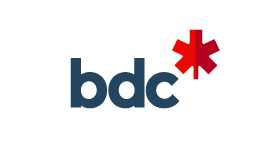 |
BDC
The 75 year old firm is the only Canadian bank devoted exclusively to supporting entrepreneurs. |
 |
Borrowell
Borrowell helps Canadians make great decisions about credit. They were the first company in Canada to offer credit scores for free, without applying for credit, and currently has over 800,000 users. Eva Wong and Andrew Graham were the joint recipients our the CLA’s awards in 2018. |
 |
Clearbanc
Clearbanc offers a new approach to capital access for entrepreneurs that uses AI to determine funding terms with a focus on unit economics and repayment through revenue share as a way to get founders access to the capital they need to fuel their growth. |
 |
CreditSnap
CreditSnap is a best in class pre-qualification and cross selling engine to deliver highly relevant pre-qualified loan offers to CreditSnap banks and CUs. |
 |
Dealnet Capital
Dealnet Capital services the home and retail sectors providing end-to-end financing plus innovative technology and communication solutions. |
 |
Espresso Capital
Since 2009, Espresso Capital has provided over 230 early and growth stage technology companies with founder friendly capital. Espresso offers lines of credit and term loans to enable entrepreneurs to grow their businesses without dilution, board seats, or personal guarantees. |
 |
Financeit
Financeit is a market leading point-of-sale consumer financing provider, servicing the home improvement, vehicle and retail industries. |
 |
First West Capital
First West Capital is a leader in Canadian mid-market business funding. First West Capital helps ventures acquire and transition through innovative junior capital financing. |
 |
Home Trust
Home Trust Company is one of Canada’s leading trust companies. Home Trust offers Canadians a wide range of financial product and service alternatives, including mortgages, Visa cards, deposits and retail credit services. |
 |
Inverite
Inverite is the first Canadian designed, developed and focused real-time bank verification service. With coverage for over 240 Canadian FIs. |
 |
IOU Financial
Based in Montreal, IOU Financial provides small businesses throughout the U.S. and Canada access to the capital they need to seize growth opportunities quickly. |
 |
Lending Loop
Lending Loop is Canada’s first and only regulated peer-to-peer lending marketplace focused on small business. |
 |
Magical Credit
Magical Credit has been helping Canadians consumers get approved for quick and simple short term personal loans since 2014. They offer personal loans up to $10,000 regardless of the borrowers past financial issues or credit. |
 |
Manzil
Manzil is the market leader in the manufacturing and distribution of Islamic Financial products for Canadians who wish to balance material pursuits with their spiritual obligations. |
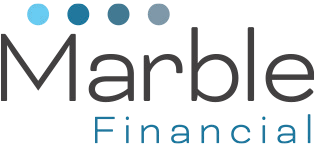 |
Marble Financial
Marble Financial uses smart technology and socially responsible lending practices to help Canadians rebuild credit once their past debt has been settled by a consumer proposal. |
 |
Owl
owl.co is a customer insight engine that helps financial institutions make better decisions. By connecting to tens of thousands of trusted data sources, Owl is able to instantly aggregate and synthesize millions of data points to learn more about customers and entities. |
 |
Paays
Paays is a Canadian eCommerce financing solution for a new generation of digital consumers seeking “point of inspiration” financing. |
 |
PayPal Canada
PayPal Canada recently announced a new SMB loan offering in Canada – a quick application process that can approve an applicant in minutes and transfer funds in one to two business days. |
 |
Progressa
Named by CB Insights to the 2018 Fintech 250, a list of the world’s top fintech startups, Progressa is Canada’s fastest growing financial technology lender focused on changing the way pay cheque to pay cheque Canadians access and build credit. |
 |
Shopify Capital
In its effort to become a one-stop e-commerce shop, Shopify Capital allows Shopify business owners to secure funding through revenue sharing on daily sales. |
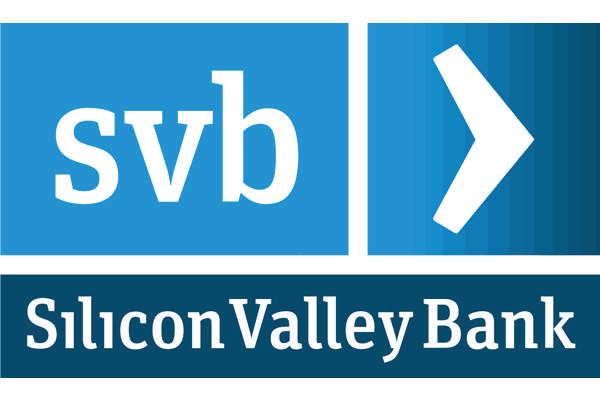 |
Silicon Valley Bank
For more than 35 years, Silicon Valley Bank (SVB) has helped innovative companies and their investors move bold ideas forward, fast. SVB provides a full range of financial services and expertise to companies of all sizes in innovation centers around the world. |
 |
Spring Financial
Spring Financial is a subsidiary of Canada Drives, one of the leading brands for auto financing in Canada. Spring provides accessible solutions for Canadians to establish a positive payment history. |
 |
Thinking Capital
Thinking Capital is a leader in the Canadian Online Lending space, leveraging technology to be at the forefront of the FinTech industry. Since 2006, they have helped more than 14,000 small-to-medium sized Canadian businesses reach their full potential |
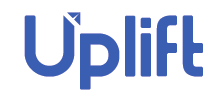 |
Uplift
Uplift’s mission is to make travel more accessible, affordable and rewarding by enabling travel providers such as JetBlue, American Airlines, and United to offer flexible payments to their customers. |
 |
Venbridge
Venbridge is a leading Canadian venture debt firm. Venbridge provides SR&ED, grant and digital media financing and consulting. |
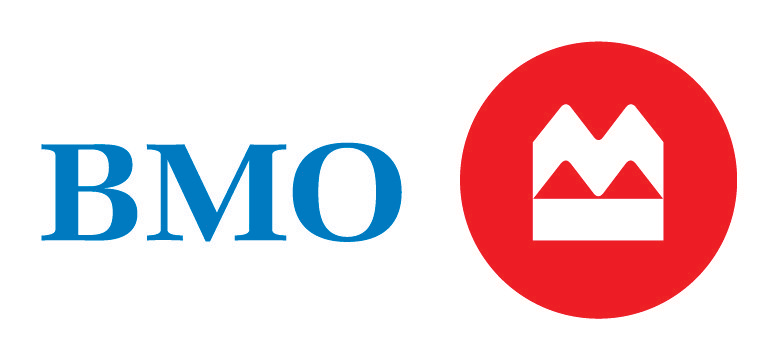
National Business Capital & Services Expands into Cannabis Funding with CannaBusiness Financing Solution
October 15, 2019 Today National Business Capital & Services (NBC&S) announced it has begun serving cannabis companies. Through its new program, CannaBusiness Financing Solution, NBC&S is now accepting applications for loans starting at a minimum of $10,000 from firms in the industry that are over one year old.
Today National Business Capital & Services (NBC&S) announced it has begun serving cannabis companies. Through its new program, CannaBusiness Financing Solution, NBC&S is now accepting applications for loans starting at a minimum of $10,000 from firms in the industry that are over one year old.
“The CannaBusiness Financial Solution will allow business owners to seamlessly obtain the capital they need, and allocate funding toward either hiring new employees, purchasing inventory, marketing strategies, or any other business need right away, without government regulations hindering growth opportunities or having to give up equity,” explained NBC&S President Joseph Camberato. “We’re not a bank and the lenders we work with aren’t banks either, so it falls into a different area of commercial lending.”
CannaBusiness is available in the 33 states where cannabis is legal, be it for medicinal or recreational uses, as well as in Canada.
“It’s a rapidly growing space, no pun intended,” joked Camberato when asked about the differences in funding cannabis companies compared to the industries NBC&S has served in its 12 years of business. “It would still be underwritten, just like one of our normal businesses. But we’re definitely going to want to know a little bit more about the business and understand what exactly they’re doing, how they’re operating, and exactly what are they’re focused on.” They’ll also examine if the business is in compliance with state laws. Qualifying cannabis companies must be in business for at least 1 year, with a minimum of $10K in monthly revenue. There is no minimum FICO score requirement.
 While it’s not the first funder for cannabis companies, NBC&S views the move as a step in the right direction to “get ahead of the curve” according to Camberato. “We’re living through a modern-day prohibition, I think in 20 years we’ll look back on it and talk about it with our grandchildren and be like, ‘wow’ … I don’t think people realize how big of a deal this really is, but it is a business and it is another industry that has bloomed in front of us, again no pun intended. I think it’s fascinating that we get to witness this and that we’re really at the forefront of it and helping folks get the funds they need to grow.”
While it’s not the first funder for cannabis companies, NBC&S views the move as a step in the right direction to “get ahead of the curve” according to Camberato. “We’re living through a modern-day prohibition, I think in 20 years we’ll look back on it and talk about it with our grandchildren and be like, ‘wow’ … I don’t think people realize how big of a deal this really is, but it is a business and it is another industry that has bloomed in front of us, again no pun intended. I think it’s fascinating that we get to witness this and that we’re really at the forefront of it and helping folks get the funds they need to grow.”
Jumping off from the politically charged word of ‘prohibition,’ NBC&S’ Vice President of Marketing, T.J. Muro, noted that he believed cannabis legislation to be one of the few issues that can be bipartisan, saying, “Out of everything today in our political climate, I think it’s the one thing that has unified people in the political parties. The liberal side appreciates the cultural influence and significance there, and then on the more conservative side it’s the tax revenue.”
The upcoming Senate vote on the SAFE Banking Act will put this theory to the test. The bill, which would allow the cannabis industry wider access to banking, has already passed the House.
Born To Borrow
August 26, 2019 Consumer debt has surpassed $4 trillion for the first time, and it’s continuing its ascent into the stratosphere. It’s getting big enough to trigger the next recession, and financial education isn’t changing the underlying consumer behavior.
Consumer debt has surpassed $4 trillion for the first time, and it’s continuing its ascent into the stratosphere. It’s getting big enough to trigger the next recession, and financial education isn’t changing the underlying consumer behavior.
Personal loan balances shot up $21 billion last year to close 2018 at a record high of $138 billion, according to a TransUnion Industry Insights Report. The average unsecured personal loan debt per borrower was $8,402 as of the end of last year, TransUnion says.
Much of the increase in consumer debt has emerged with the rise of fintechs— such as Personal Capital, Lending Club, Kabbage and Wealthfront—notes Rutger van Faassen, vice president of consumer lending at a U.S. office of London-based Informa Financial Intelligence, a company that advises financial institutions and operates offices in 43 countries.
In fact, Fintech loans now comprise 38% of all unsecured personal loan balances, a larger market share than any of the more traditional institutions, the TransUnion report notes. Banks’ market share has decreased from 40% in 2013 to 28% today, while credit unions’ share has declined from 31% to 21% during the same time period, TransUnion says.
 Fintechs are also gaining at the expense of the home- equity market, van Faassen maintains. “They’re eating away at some of the balance that maybe historically was in home-equity loans,” he says. While total debt is increasing, the amount that’s in home equity loans is actually shrinking, he notes.
Fintechs are also gaining at the expense of the home- equity market, van Faassen maintains. “They’re eating away at some of the balance that maybe historically was in home-equity loans,” he says. While total debt is increasing, the amount that’s in home equity loans is actually shrinking, he notes.
What’s more, fintechs are changing the way Americans think about credit, van Faassen continues. Until recently, consumers experienced a two step process. First, they identified a need or desire, like a washer and dryer or home renovation. Realizing they didn’t have the cash to fund those dreams, they took the second step by approaching a financial institution for a loan.
If consumers chose a home equity line of credit to procure the cash, they had to wait for something like 40 days from the beginning of the application process to the time they got the money, van Faassen says. “You really had to be sure you wanted something,” or the process wasn’t worth the effort, he says.
Fintechs have removed a lot of the “pain” from that process, van Faassen says. With algorithms helping to assess the risk that an applicant can’t or won’t repay a debt and digitization easing access to financial records, fintechs can quickly evaluate and make a decision on an application. Tech also helps assess applicants with thin or nonexistent credit files, which broadens the clientele while also contributing to total consumer debt.
Meanwhile, mimicking an age old process in the car business, merchants are beginning to make credit available at the point of sale. Walmart, for example, recently signed a deal with Affirm, a Silicon Valley lender, to provide point-of-sale loans of three, six or 12 months to finance purchases ranging from $150 to $2,000. Shoppers apply for the loans by providing basic information on their mobile phones and don’t have to talk to anyone in person about their finances. Affirm’s CEO Max Levchin has called the underwriting process ‘basically instant.”
If that convenience comes at too high a cost, it doesn’t matter much because borrowers can later find another finance vehicle with better terms, van Faassen says. “So if I get the money at the point of sale, which might have been zero for six months and then it steps up to 20-plus percent, there is no problem with refinancing that debt,” he says.
But there’s a downside to the ease of borrowing, van Faassen cautions. It could trigger the next recession, even though unemployment remains low. Despite modest recent gains, wages have remained nearly stagnant for years. That means an increase in interest rates could lessen consumers’ ability to pay off their debts, he says.
 Meanwhile, at least some large mortgage lenders have begun running into problems, a situation that bears an eerie resemblance to the beginning of the Great Recession that struck near the end of 2007, notes a report in luckbox magazine, a publication for investors. Stearns Holding, the parent of Sterns Lending, the nation’s 20th largest mortgage lender, filed for bankruptcy protection just after the July 4 holiday, the luckbox article says.
Meanwhile, at least some large mortgage lenders have begun running into problems, a situation that bears an eerie resemblance to the beginning of the Great Recession that struck near the end of 2007, notes a report in luckbox magazine, a publication for investors. Stearns Holding, the parent of Sterns Lending, the nation’s 20th largest mortgage lender, filed for bankruptcy protection just after the July 4 holiday, the luckbox article says.
Another worrisome sign with regard to the possibility of recession is emerging as institutional investors buy into the peer to peer lending market. Institutional investors bought batches of sliced and diced home mortgage securities that helped bring about the Great Depression.
Then there’s the nagging notion that the country and the world are becoming ripe for recession simply because no downturns have occurred for a while. Talk to that effect was circulating at the recent LendIt Conference, van Faassen observes. Fintech executives often come from the banking world and thus still find themselves haunted by the specter of the Great Recession. That’s why they’re already beginning to tighten underwriting for consumer credit van Faassen says.
One difference this time around lies in the fact that nothing about the increase in consumer debt appears to be hidden from public view, van Faassen says. Before, investors fell victim to the mistaken impression that risky mortgage-backed securities were rated AAA when they weren’t.
Plus, the increase in peer-to-peer lending could keep the economy going even if big financial institutions freeze the way they did during the Great Recession, van Faassen notes. “Hopefully, with the new structures that are out there, we can keep liquidity going,” he says. That raises key questions for the alternative small- business funding community. The industry came into being partly as a response to banks’ tightened lending policies during the Great Recession, so perhaps a downturn isn’t such a bad thing for the sector. But a downturn for the economy in general could cripple merchants’ ability to pay off debt.
But all bets are off during hard times. In the last recession the conventional wisdom that consumers make their mortgage payment before paying other bills was turned on its head. Instead of making the house payment—because foreclosure would take several months—people were choosing to make their car payments so they could get to work. Nobody really knows ahead of time what will happen in a recession, van Faassen notes.
After all, economics relies to at least some degree upon the often-irrational financial decisions of the general public. And science demonstrates that it’s no easy task to convince consumers to handle their cash, credit and debt responsibly, says Mariel Beasley, principal at the Center for Advanced Hindsight at Duke University and Co-Director of the Common Cents Lab (CCL), which works to improve the financial behavior of low- to moderate-income households.
“For the last 30 years in the U.S. there has been a huge emphasis on increasing financial education, financial literacy,” says Beasley. But it hasn’t really worked. “Content-based financial education classes only accounted for .1 percent variation in financial behavior,” she continues. “We like to joke that it’s not zero but it’s very, very close.” And that’s the average. Online and classroom financial education influenced lower-income people even less.
 Lots of other factors influence financial behavior, Beasley notes. How much a person saves, for example, depends upon how much they make, what their bank tells them and what practices they encountered at home as children, she says. The CCL has been finding out some other things, too.
Lots of other factors influence financial behavior, Beasley notes. How much a person saves, for example, depends upon how much they make, what their bank tells them and what practices they encountered at home as children, she says. The CCL has been finding out some other things, too.
In one example of its findings, it discovered that putting an amount for a minimum payment on a credit card decreases how much consumers pay. That happens because listing a minimum payment amount creates an anchor, and borrowers adjust their payment upward from there, Beasley says. If the card carrier doesn’t specify a minimum, consumers tend to adjust downward from the full amount they owe. “It turns out to be incredibly powerful,” she contends.
It’s the kind of problem that shows financial institutions haven’t devised many systems to reduce consumer debt by speeding up repayment, Beasley maintains. In this example, suggesting higher payments would prompt some consumers to pay off their debt more quickly.
In an exception to standard practice, a credit card company called Petal does exactly that by placing a slider on its website to help borrowers determine the amount of their payment, she notes.
Meanwhile, people tend to base financial decisions on the examples they see other people set, Beasley says. Problems arise with that tendency because they may see one neighbor spending money freely to dine in restaurants but don’t see any of the many neighbors eating at home to save money. They see a neighbor driving a new car but don’t know how much that neighbor is setting aside for retirement.
That’s why most people overestimate how much others spend to dine out in restaurants, Beasley says. When shown the error, most reduce their own spending in restaurants, she notes, but within two weeks their behavior returns to its original level, their newfound knowledge “drowned out by the noise in the world,” she says.
That’s not good for consumers or small businesses, but help is on the way, according to John Thompson, chief program officer of the Financial Health Network, a national nonprofit research and consulting firm that works with financial institutions and other companies to improve consumer financial health.
As part of that mission, the Network has formulated procedures to assess the financial health of individuals and small businesses, Thompson says. It’s too early to say whether the tool will help with loan underwriting, he notes, but financial wellness determines the ability to pay back debt, he notes.
The Network also publishes the U.S. Financial Health Pulse, which recently pronounced just 28% of Americans financially healthy, meaning that they have sufficient income, savings and planning to handle an unexpected expense and act on the decisions they make. About 55% are relegated to various stages of coping, and 17% find themselves in a vulnerable state.
So Americans aren’t feeling financially secure, and they’ve borrowed $4 trillion to reach that unenviable state. They’re borrowing more and learning virtually nothing useful about their financial errors. Thompson has a way of summing up the situation. “It’s crazy,” he says.
Fox Corp / Credible Deal – What’s Online Lending Got To Do With TV Broadcasting?
August 5, 2019 On Sunday Fox Corp announced it had agreed a deal to buy a majority share of 67% in Credible, a San Francisco-based online lending platform that is publicly traded in Australia.
On Sunday Fox Corp announced it had agreed a deal to buy a majority share of 67% in Credible, a San Francisco-based online lending platform that is publicly traded in Australia.
Credible, which was valued at $397 million by Fox, provides credit checks for mortgages, personal loans, and student loans; gathers the information yielded; and presents prequalified rates and refinancing options to customers, which they can click-through to. In addition to an investment of $265 million for their stake, Fox Corp will allocate an additional $75 million to cover Credible’s operating costs for the next two years.
The news may come as odd to many familiar with some of the media company’s biggest subsidiaries, such as Fox News, 21st Century Fox, and Fox Sports, but it is the second such investment to be made since Fox Corp sold the majority of its television and film assets to Disney for $71 billion in 2017. May saw Fox acquire 4.99% of Stars Group, an online sports betting site, for $236 million.
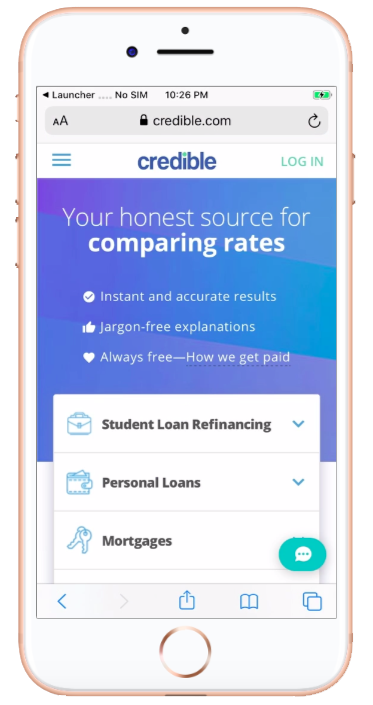 The move could be viewed as an attempt to enhance how current financial content is delivered through Fox Corp’s channels. With access to a pool of data that covers information relating to large swathes of credit ratings, loan approval speed, and financing priorities, Fox Business Network would be better positioned to deliver analysis. The Wall Street Journal, which shares a parent company with Fox Corp, News Corp, noted that Fox executives will be able to use Credible’s data in the digital avenues of its local television stations.
The move could be viewed as an attempt to enhance how current financial content is delivered through Fox Corp’s channels. With access to a pool of data that covers information relating to large swathes of credit ratings, loan approval speed, and financing priorities, Fox Business Network would be better positioned to deliver analysis. The Wall Street Journal, which shares a parent company with Fox Corp, News Corp, noted that Fox executives will be able to use Credible’s data in the digital avenues of its local television stations.
Lachlan Murdoch, who was made Chairman and CEO of Fox Corp when his father Rupert stood down earlier this year, said in a statement that “The acquisition of Credible underscores Fox Corporation’s innovative digital strategy that emphasizes direct interactions with our consumers to provide services they want and expand their engagement with us across platforms.” While in return, Credible will “benefit from our audience reach and scale, will drive strategic growth, further develop our brand verticals and deepen consumer relationships.”
A fate that Credible founder and CEO Stephen Dash appears to be content with, stating that “Fox Corporation’s record of innovation and focus on audience engagement will further enhance Credible’s position as a leading consumer finance marketplace in the United States, creating opportunities for organic growth and the expansion of the Credible platform. Credible’s industry-leading user experience, combined with FOX, will provide greater impact and scale for consumers.”
But not everyone with a stake in Credible is convinced by the decision, as Bell Potter analyst Damian Williamson has claimed. “Premature is the word to describe how some minority shareholders see the transaction … This company is operating in a very large market and has the potential to do really well.”
Regardless, the deal comes after months of negotiations, which were initially secured in May, only to go through an on-again-off-again phase until recently. While signed off by both Credible and Fox Corp, the sale won’t be confirmed until the Australian Securities Exchange approves the transaction.
Representing the first of its kind in acquisitions, the Fox Corp-Credible deal is an anomaly within the industry, being the pioneer case of a broadcasting company foraying into alternative finance – a field notedly uncovered by vast portions of the media.
Senator Elizabeth Warren Questions Federal Agencies About Discrimination in Fintech Lending
June 12, 2019 Senator Elizabeth Warren and colleague Senator Doug Jones (D-AL) addressed a letter to multiple federal agencies this week to inquire about their individual roles in overseeing fintech, particularly as it pertains to potential discriminatory underwriting.
Senator Elizabeth Warren and colleague Senator Doug Jones (D-AL) addressed a letter to multiple federal agencies this week to inquire about their individual roles in overseeing fintech, particularly as it pertains to potential discriminatory underwriting.
The senators cited a UC Berkeley study that examined discrimination in the era of algorithmic underwriting. “With algorithmic credit scoring,” the researchers write, “the nature of discrimination changes from being primarily concerned with human biases – racism and in-group/out-group bias – to being primarily concerned with illegitimate applications of statistical discrimination. Even if agents performing statistical discrimination have no animus against minority groups, they can induce disparate impact by their use of Big Data variables.”
The letter tasked the Federal Reserve Chairman, OCC Comptroller, CFPB Director, and FDIC Chairman with responding to 5 questions by June 24th. They are:
1. What is your agency doing to identify and combat lending discrimination by lenders who use algorithms for underwriting?
2. What is the responsibility of your agency with regards to overseeing and enforcing fair lending laws? To what extent do these responsibilities extend to the fintech industry or the use of fintech algorithms by traditional lenders?
3. Has your agency conducted any analyses of the impact of fintech companies or use of fintech algorithms on minority borrowers, including differences in credit availability and pricing? If so, what have these analyses concluded? If not, does your agency plan to conduct these analyses in the future?
4. Has your agency identified any unique challenges to oversight and enforcement of fair lending laws posed by the fintech industry? If so, how are you addressing these challenges?
5. Has your agency identified increased cases of lending discrimination in financial institutions that participate in the fintech industry? Are there additional statutory authorities that would help your agency enforce fair lending laws or protect minority borrowers from discrimination in their interactions with the fintech industry?
Credit Invisibles Recap – Presented by Canadian Lenders Association in Toronto
June 9, 2019The Canadian Lenders Association’s (CLA) workshop on credit invisibles and credit deserts was held at the Toronto law offices of Blake, Cassels & Graydon on June 5th. Situated in the financial district with views of the CN Tower, Michael Turner of Policy and Economic Research Council (PERC) kicked off the morning with a presentation on credit invisibility.

Using data from TransUnion Canada, PERC’s research showed that 36.5% of all credit files in Ontario, the most populous province, have between 0-2 trade lines. Anything fewer than three was considered to be credit invisible. The numbers were similar for Quebec and British Columbia at 33.7% and 37.2% respectively. Meanwhile, in sparsely populated Yukon, the percentage of invisibility is over 65%.
Credit deserts were geographic areas where invisibility was highly concentrated.

The panel that followed affirmed PERC’s research that there is a lack of available credit data on a significant portion of the population and that geographics play a role. Panelists included Jason Appel, EVP & Chief Risk Officer of goeasy ltd., Glenn Waine, Head of Data Science at TransUnion, Elizabeth Sale, Partner at Blake, Cassels & Graydon LLP, Tony Vardy, COO at Progressa, Vahan Der Kaloussian, Director of Data Science at Capital One, and Christopher Grnak, CRO & EVP and Trust Science.
A video recording of the presentations is below:
Affirm Partners with Walmart for Payments
February 28, 2019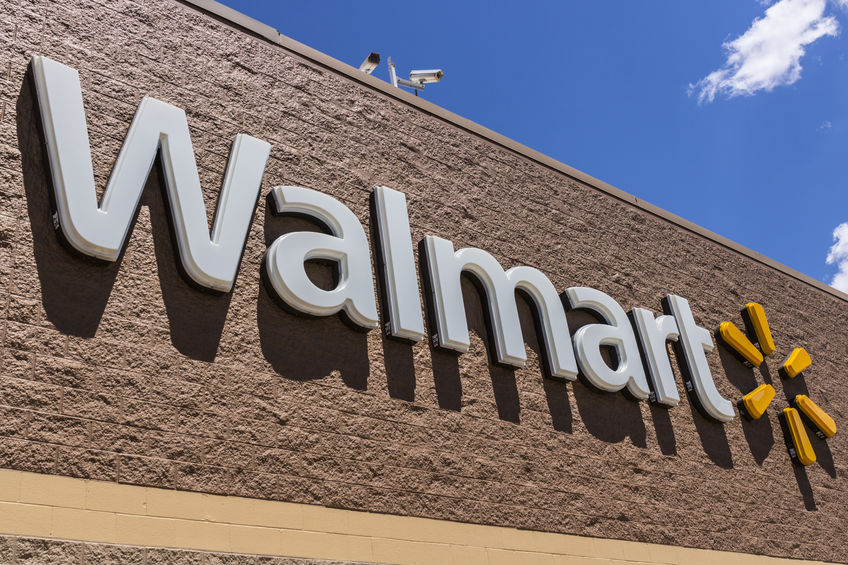 Walmart customers can now pay for items using credit from Affirm, the online consumer lender announced yesterday. Walmart customers can find out how much they qualify for online and then make online or in-store purchases with in three, six or twelve monthly installments. A credit decision is made in real time and does not affect the customer’s credit score, according to Affirm.
Walmart customers can now pay for items using credit from Affirm, the online consumer lender announced yesterday. Walmart customers can find out how much they qualify for online and then make online or in-store purchases with in three, six or twelve monthly installments. A credit decision is made in real time and does not affect the customer’s credit score, according to Affirm.
“Walmart serves millions and has become a leader in the retail landscape with its commitment to help shoppers ‘save money and live better,’ which closely mirrors our own mission to ‘improve lives’ with our products,” said Max Levchin, founder and CEO at Affirm, as well as a founder of PayPal. “I’m looking forward to introducing Walmart customers to a modern and innovative way to buy the things they need.”
Affirm is now available as a payment option on Walmart purchases ranging from $150 to $2,000. This is not Walmart’s first foray into financing. In fact, in July of last year, Walmart entered into an exclusive partnership with Capital One to issue a Walmart credit card. But Elizabeth Allin, Vice President of Communications at Affirm, said that this partnership is the first point-of-sale loan product partnership for Walmart.
“They’ve really embraced e-commerce and the evolution of digital and mobile,” Allin said of Walmart, which has been the biggest retailer in the world for years.
Now 57 years old, the retail giant is pursuing partnerships with financial organizations to facilitate access to customer credit. But back in 2006, Walmart set its sights on bringing these lending operations in house, by becoming bank. Using a controversial statute, it attempted to get a charter to become an ILC bank. Met with strong opposition from banks and other opponents, Walmart backed down.
Elevate Reflects on Success of Fintech in Personal Loans
February 21, 2019The unsecured personal loan market hit an all-time high in 2018, jumping 17 percent year-over-year to $138 billion, according to data from TransUnion released today and featured in a CNBC story.
“The rapid growth in consumer loans sits squarely on the shoulders of fintechs,” said Jason Laky, senior vice president and leader of TransUnion’s consumer lending line of business. “They continue to be the main driver.”
According to the data, fintech companies, like LendingClub, Prosper and Elevate, issued 38 percent of all U.S. personal loans last year, which is up from 35 percent in 2017 and just five percent in 2013. Conversely, banks’ market share for unsecured personal loans is shrinking. Traditional banks’ share of these loans is down to 28 percent from 40 percent five years ago.
Will this trend continue? The non-bank consumer lenders think so.
Credit unions are down to 21 percent from 31 percent in the time period. While their market share shrank, they still saw overall growth in total loan balances, according to Laky.
“Although regulations are starting to loosen, banks still cannot provide the kind of emergency funds that so many Americans need,” Chief Operating Officer of Elevate Credit Jason Harvison told deBanked via email.
He said that the rise of the gig economy has created near-constant income volatility for a large number of Americans and cited a recent JP Morgan Chase study that found that 41% of U.S. households experience income fluctuations of 30% or more month-to-month.
“Many consumers who need access to funds quickly in order to weather financial emergencies can’t access personal loans from banks,” Harvison said. “Online lenders can help fill this void.”
By lending to non-prime borrowers, do these lenders worry a lot about what might happen in an economic downturn?
“We’ve found in past downturns that non-prime consumers actually fare better than prime,” Harvison said. “Essentially, non-prime consumers are always living their lives in a state of “recession.” They experience income volatility, job insecurity, and a lack of access to necessary financial products. They live like this every day, and therefore know how to weather these challenges.”





























